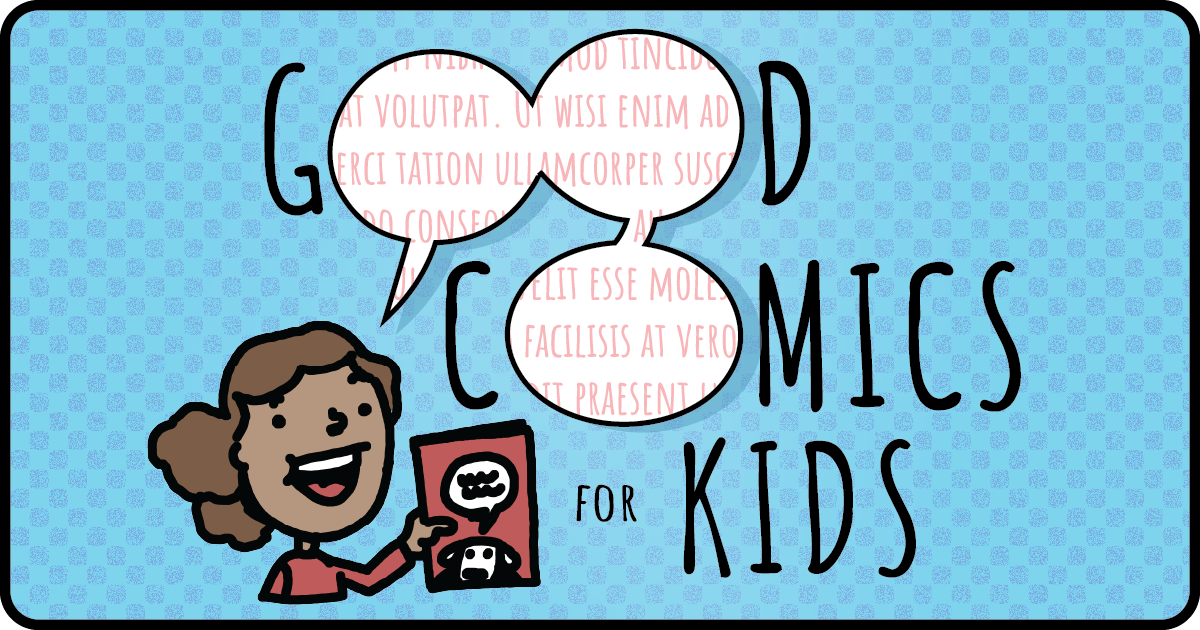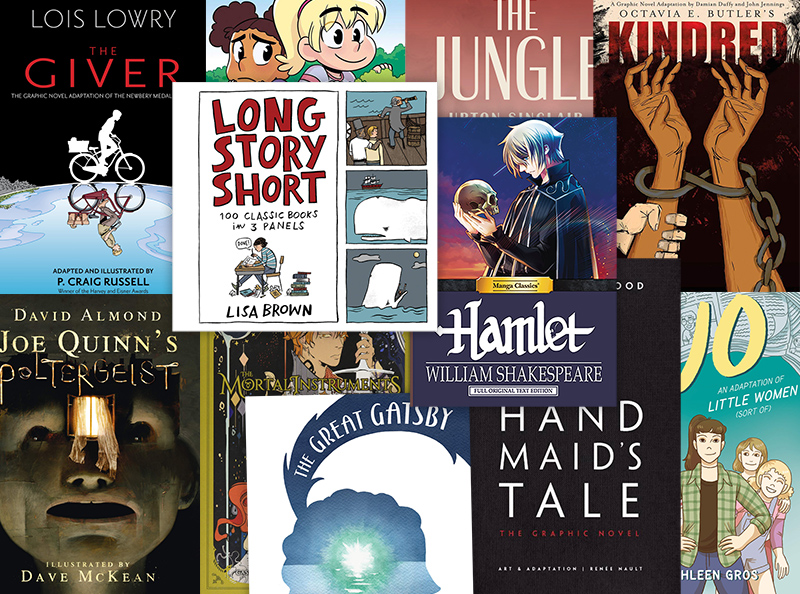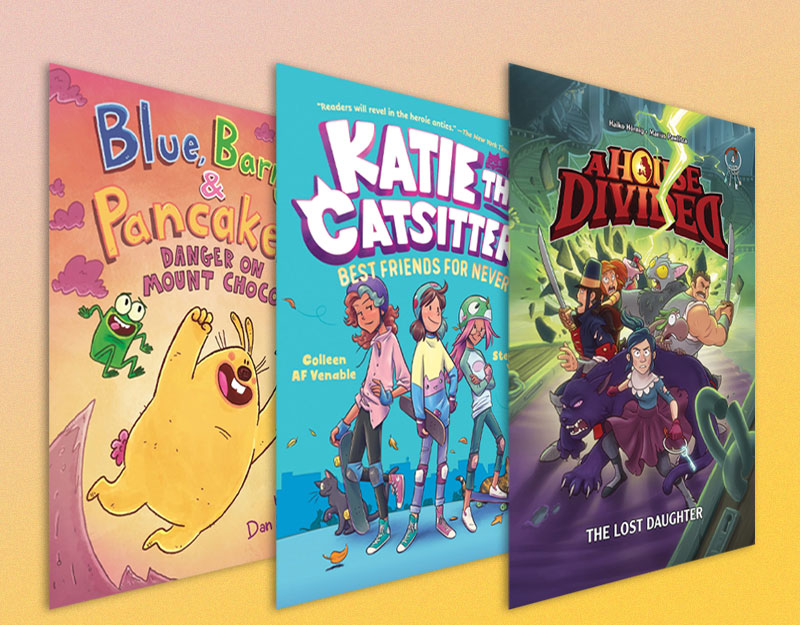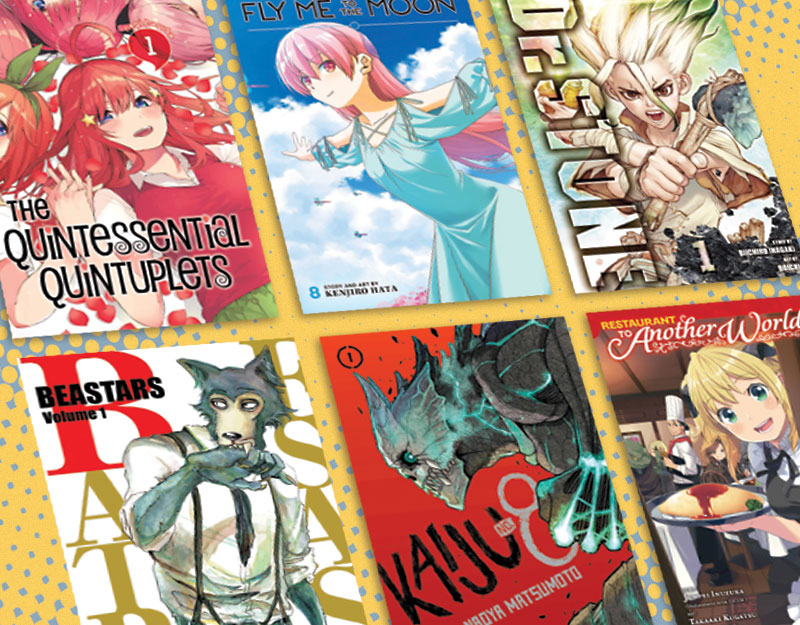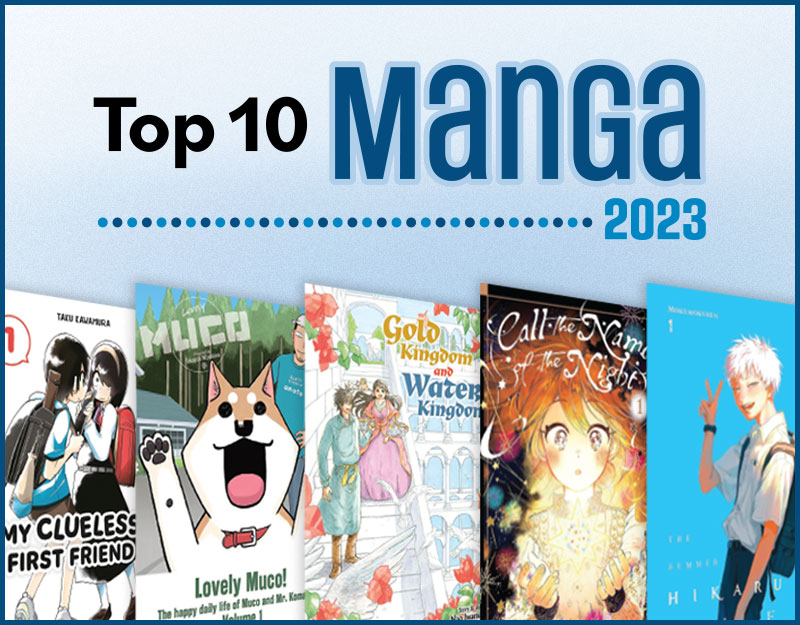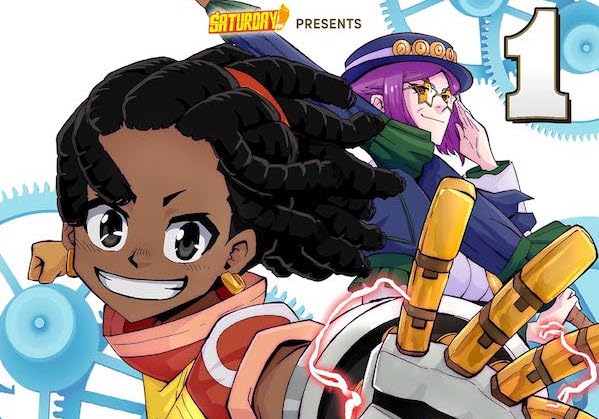
Interview with Frederick L. Jones of Saturday AM
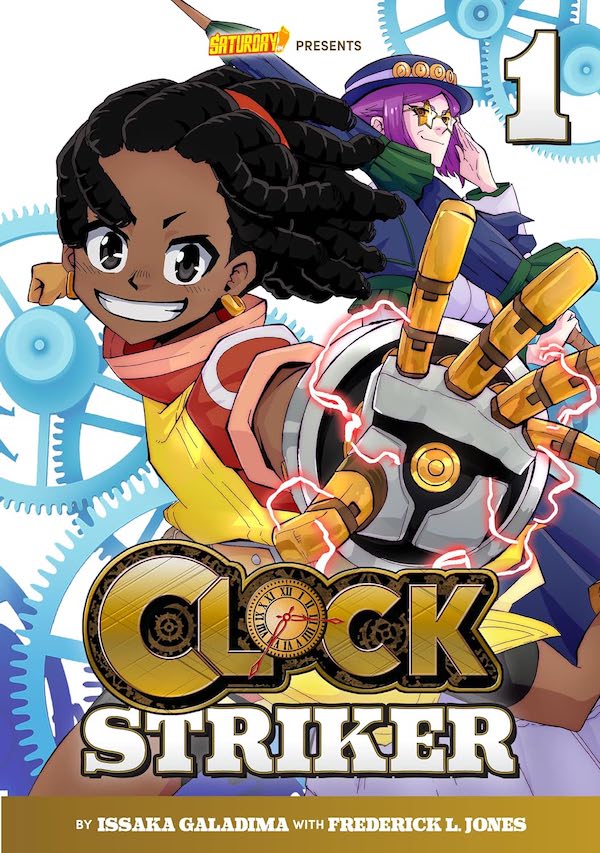
At the 2023 American Library Association annual conference in Chicago, I had the pleasure of meeting Frederick L. Jones, founder of Saturday AM, a manga-inspired publication that produces stories with diverse representation written by a widely diverse group of writers from all over the globe. Along with presenting with Mr. Jones at ALA on the panel, BIPOC Teens Connect to Manga, we discussed how representation matters especially in the manga world, where BIPOC teens relate and feel seen in this genre. I hope you enjoy this interview and continue to support this amazing group of storytellers.

Please tell us what brought Saturday AM to life.
I’ve long been a fan of manga and anime since I was a kid, even when I wasn’t sure exactly what they were. I just knew it wasn’t Marvel or DC Comics, and it wasn’t the regular Saturday morning cartoons from Hanna Barbera.
ADVERTISEMENT
ADVERTISEMENT
My fascination with it led me to Japan via Duke University’s SISTER CITIES Exchange Student program and into the videogame industry after college. I’ve always wanted to participate in this beautiful art form, but as I got older—I wanted to see more black and brown characters. Once I could create original manga-style content, I based it on my desire to see more diversity and work with incredible creators outside Japan.

The name came to me once I accepted that the era of Saturday morning cartoons was magical and worth honoring as it was pre-internet and had very few TV channels. Hence, you had to plan for which shows you would watch, and only the best ones kept your attention—just like an anthology.
What do you feel makes Saturday AM different from other manga publishers?
Saturday AM has many unique things, including our EXCLUSIVE MANGA series, but I believe at my core that our commitment to DIVERSE creators and content truly allows us to stand out from every other group, be they from Japan or elsewhere.
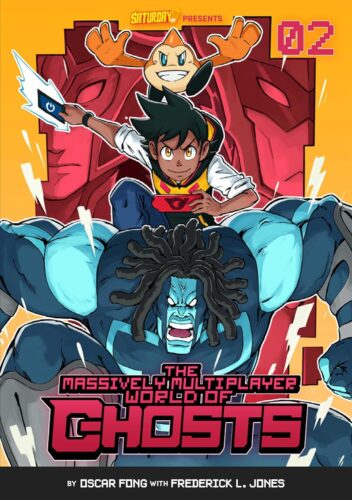
For one thing, Saturday AM has the most widely distributed set of African creators than any other manga publisher. Our talent from Africa covers countries such as Nigeria, Niger, Ghana, Senegal, Zimbabwe, South Africa, and more!
Likewise, no manga publisher has series like CLOCK STRIKER, shonen manga’s 1st black female lead hero, nor MASSIVELY MULTIPLAYER WORLD OF GHOSTS, 1st manga with a South Asian lead hero, or our 1st Light Novel, APPLE BLACK ORIGINS, which features a black lead character.
I’ve told this story many times, but an African creator once remarked that he didn’t create black manga characters for his series because it would seem ‘forced.’ That statement, while disappointing, is the natural sentiment one would think when they never see black or brown characters as the love interests, heroes, or prominent characters in manga/anime.
As a black man, I understand that that is a DANGEROUS perception for any young person to have, and thus, our diversity is so core to who we are across every fiber of our company – from staff to creators, characters to settings.
When kids see our manga and feel SEEN by our manga with characters and creators that may actually look like them, then Saturday AM allows the entire manga industry to TRULY feel like a universal product that can inspire ANY and EVERY young person.
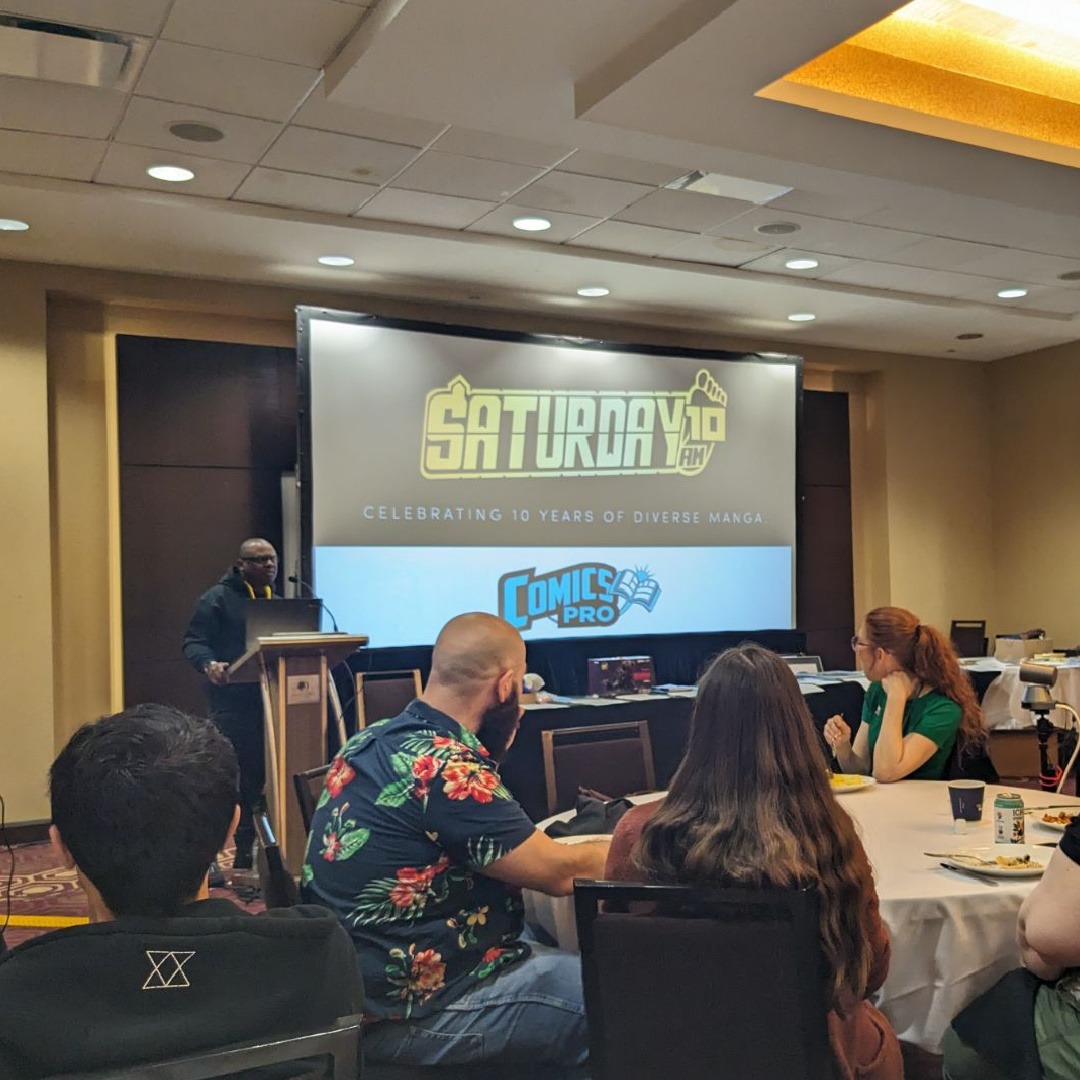
With the success of Saturday AM’s series, including the amazing Clock Striker (which was named as one of YALSAs 2024 Great Graphic Novels for Teens), what responses have you received from your readers?
As mentioned earlier, the response to our Saturday AM diverse manga combines excitement, joy, and HOPE! Neither the Western manga industry nor the Western pundits or Western journalists/websites had been rather shy in covering manga’s massive fanbase of black and brown kids and the frustration many feel in the lack of representation.
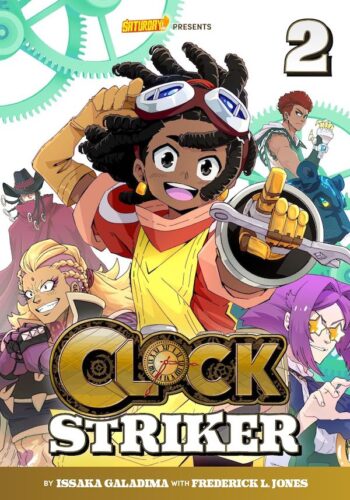
Many kids of color receive unwarranted attacks whenever they cosplay as a manga character, when or if they’ve created a piece of art with a black manga character, or if they actually attempt to pursue a career as a voice actor for anime.
When CLOCK STRIKER debuted, the love we got from kids of ALL RACES and adults of BOTH GENDERS was simply overwhelming and emotionally gratifying! There is a scene where Cast, the main character, has her braids loosed and is being re-braided by her mentor Ms. Clock. That one moment of pure black joy was not only emotionally felt by every black female manga fan, but the act of seeing Cast’s hair being braided by her older white teacher touched women of all backgrounds as a pure moment of female solidarity. It felt like a collective EXHALE from folks who always wondered if there would be a moment when they could see something unapologetically THEIRS, and now they have it. And we’re not done!
Every new announcement for CLOCK STRIKER and other Saturday AM manga has created a similar appeal. Seeing our books with Quarto Group in stores worldwide, our apparel from Atsuko in stores, or our latest partnership with Sandisk ALL create a new sense of excitement for our fans who can endeavor to create a non-Japanese manga and imagine an authentic path of success for themselves.
What more would you like to see in the world of manga?
Saturday AM has lofty ambitions, and our ultimate vision is to see a BIG and MATURE MARKET for diverse manga across any genre. For example, in Japan, there are SO MANY MANGA titles that a creator can have a successful series that many outside Japan will never even hear about.
Furthermore, as the Japanese market is so large, there is a manga for just about ANY concept, whether playing Jazz music, going through a divorce, being an art school student, etc.
We must remember that before Saturday AM, the idea of non-Japanese manga appearing in the manga section in bookstores and competing with top manga from Japan was rare. It was also NOT a given that a manga could feature an obviously black lead character and be successful. We’ve changed that forever and want to see it continue to evolve.
I hope Saturday AM’s success will normalize diversity so that more diverse creators bring nuanced, unique perspectives to manga and find a sizable global market to support them.
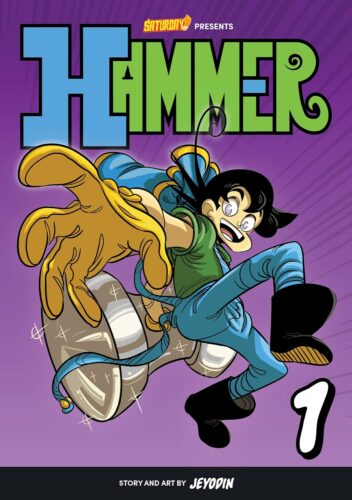
What trends or genres have you seen that resonate with your readers?
Well, action-based series will always be in vogue. While HAMMER, HENSHIN!, and UNDERGROUND are very different, they also feature dramatic action that propels the storylines.
That said, I think that CLOCK STRIKER, SOUL BEAT, and APPLE BLACK have indeed shown that you can have an authentic feeling and looking manga with more ethnically diverse heroes. At the same time, series like GUNHILD, OBLIVION ROUGE, and YELLOW STRINGER bring a proper auteur level of storytelling that immerses one’s culture and has shown that those types of personal titles can also appeal to our readers.
Ultimately, I want to bring more middle-grade, horror, suspense, and romance titles to our line. And I’ll never stop wanting more diverse content! We will unveil new series from Arabic, Trans, and Brazilian creators over the next few months, and I can’t wait for our fans to experience them!
Where do you see Saturday AM in the future?
It’s been an incredible ten years thus far.
Our books are selling in 41 countries, most mass bookstores, libraries, and comic book stores worldwide.
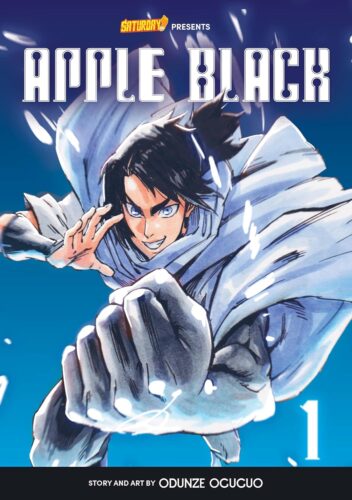
Our characters have appeared on the cover of magazines like NEO in the UK and in gallery shows such as the Kyoto International Manga Museum, and we have licensed our creator-owned heroes for apparel, flash drives, trading card games, and digital games. Finally, as you mentioned, two years into our print publishing program and receiving award nominations and honors like YALSA’s Great Graphic Novels for Teens 2024 has been extremely satisfying.
To get a high-quality anime adaptation of ANY of our series would be such an incredible accomplishment. We are working on it as studios from America, Europe, and Japan have contacted us. With CLOCK STRIKER, APPLE BLACK, GUNHILD, and other series — we feel that Saturday AM has proven our ability to create iconic manga characters!
Likewise, Saturday AM has also led efforts to create ladders of opportunity for new creators to be discovered and win art supplies or financial prizes. Our book HOW TO DRAW DIVERSE MANGA was one of the 1st manga tutorial books ever to address how to craft black hairstyles and facial features respectfully and non-stereotypically. We’re excited to introduce the next book in this series called MAKING MANGA the Saturday AM Way.
That said, our main future plans are focused on increasing our sales and readership, bringing more unique creators to the market, and continuing to excite young fans with original characters that capture the spirit of this impressive, progressive, and passionate Generation Z.
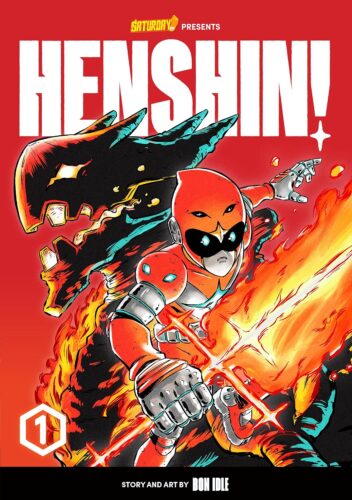
Final thoughts for your readers and those in the manga world.
I’ve often compared HIP-HOP to MANGA because the similarities are so apparent.
For example, when I was a kid in the ’70s and ’80s, HIP-HOP was a black American urban art form. Today, it’s a global pop culture standard with successful artists from Israel to Russia, Japan to Brazil. In fact, the most successful GLOBAL ARTISTS are a white kid from Detroit named Eminem and a bi-racial, Jewish Canadian named Drake.
10 years ago, people told me that Saturday AM would never work. They said that Black people making manga wouldn’t excite readers, sell, or even receive accolades.
ADVERTISEMENT
ADVERTISEMENT
10 years later, we are still working hard to change these perceptions and provide a future that will support manga creators from around the world regardless of where they are, what they look like, who they love, or what their cultural background is.
For most young people, when you ask them what their favorite COMIC BOOK is? They’ll name a manga series. And if you ask them about BATMAN and IRON MAN they are more likely to mention the films. Likewise, if you work with Art Schools in the US, as we do, you’ll hear openly from Professors and School administrators how much MANGA ART has become the norm amongst the style of their annual new student submissions.
DIVERSE MANGA is here and has been for a long time, and just like in Hip Hop, Saturday AM’s goal is not to undercut what has come before but to add a new wrinkle to the art form so that it may continue to blossom into the distant future.
We hope readers, artists, pundits, librarians, and buyers will continue to support SATURDAY AM.
Thank you Frederick L. Jones for taking time for this interview, and keep fighting the good fight. You can find Saturday AM at https://www.saturday-am.com/, and on X (formally known as Twitter) at @Saturday_am.
Filed under: All Ages, Graphic Novels, Interviews, Manga, Web Comics, Young Adult
About Renee Scott
Renee Scott is a young adult librarian based in NYC, as well as a dedicated otaku and gamer. She is a lifelong fan of comics, anime, and manga. She can be found on Twitter at @libraryladynyc, and on her review blog, The Library Lady of NYC Reviews.
ADVERTISEMENT
ADVERTISEMENT
SLJ Blog Network
Name That LEGO Book Cover! (#53)
Cover Reveal and Q&A: The One and Only Googoosh with Azadeh Westergaard
Fighting Public School Book Bans with the Civil Rights Act
Take Five: Middle Grade Anthologies and Short Story Collections
ADVERTISEMENT

